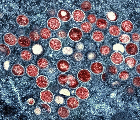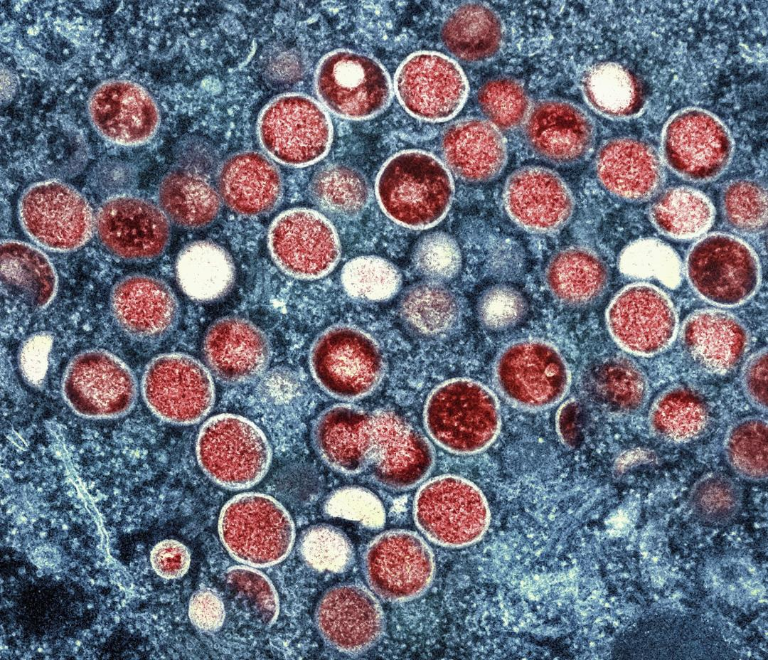
Health officials say 75% of MONKEYPOX cases seen in Congo are kids under 10.
The Munigi clinic has seen just over 300 cases so far, with no deaths. The AP reports that Congo has claimed virtually all of the world's 17,000 or so monkeypox cases this year. 17, or so..
(web.archive.org)
🤢 These people are sick! 🤮

More than 450 people have died of monkeypox in the Democratic Republic of Congo this year, and children seem to make up the lion's share of the cases there. Dr. Pierre Olivier Ngadjole of the charity Medair tells the BBC that 75% of those who've contracted the infectious disease at a Munigi clinic in the country's east are children under the age of 10, with the outlet citing kids' less-developed immune systems as part of the issue. Ngadjole also notes that those sheltering at a camp for people displaced by conflict in the region are crammed in tight quarters, and that children "are always playing together. They don't really care about social distance."
The Munigi clinic has seen just over 300 cases so far, with no deaths. The AP reports that Congo has claimed virtually all of the world's 17,000 or so monkeypox cases this year (96%), with about 500 deaths, leading the World Health Organization to earlier this month deem the contagious illness a "public health emergency of international concern." The outbreak in the eastern sector of Congo is linked to a new strain called clade 1b, with cases also being reported in more than a dozen neighboring African countries. The CDC noted that, as of last Wednesday, no clade 1 cases had been reported in the United States, and that the risk of monkeypox finding its way here "is low."
There are no vaccines in Congo yet to deal with the disease, though the nation's government says it's hoping for shipments soon from both Japan and the United States. Ngadjole tells the BBC, however, that vaccination is just one piece of the puzzle. "When we improve the hygiene at household level, when we improve the hygiene at community level, it's very easy to decrease the risk of transmission," he says. One mom of five in the Mudja camp, not far from Mount Nyiragongo, begs, "Tell our leaders to send us medicine, soap, and other protective measures so that we don't get infected."
In camps, I wonder if they’re run by the UN.